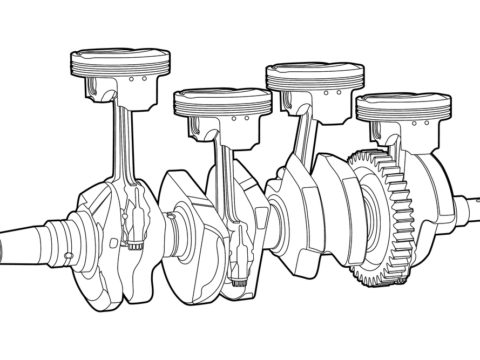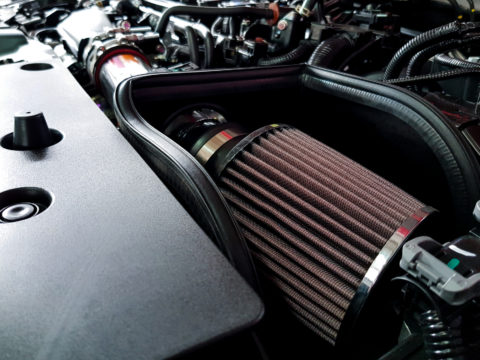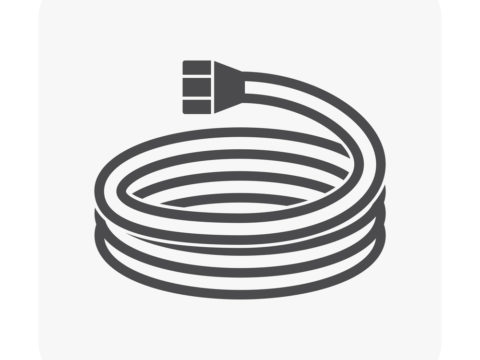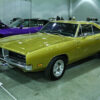There are many critical components in modern vehicles. The cooling system is one of the most important. It prevents heat from building up and causing damage. But can low coolant cause rough idle? Let’s take a closer look at this system to find the answer.
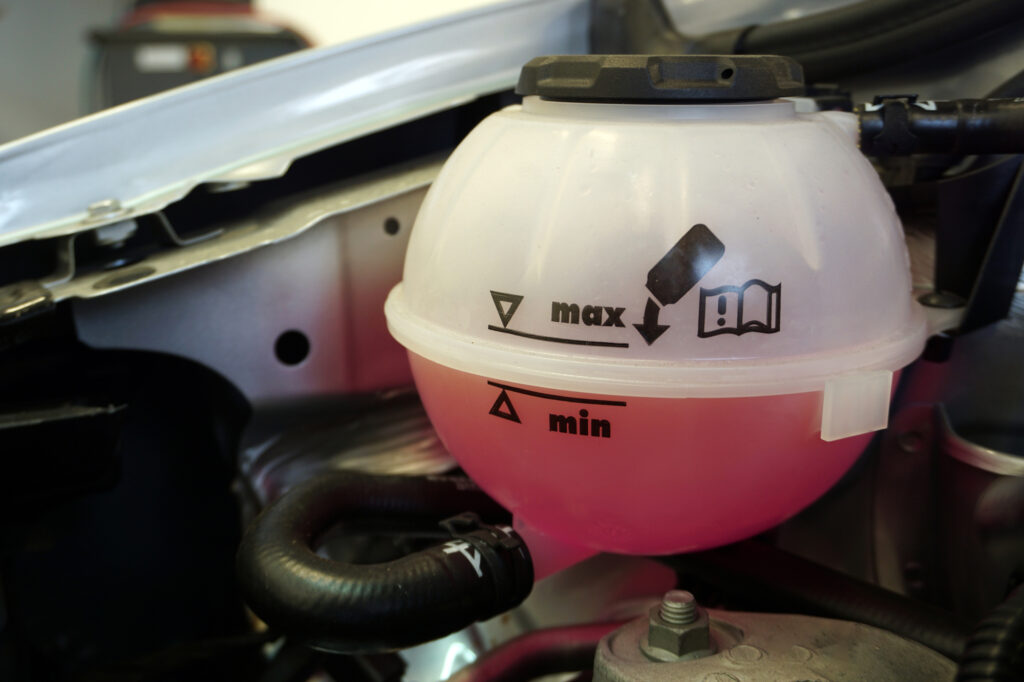
Contents
What Is Coolant in a Car?
Coolant, also known as antifreeze, is a fluid that removes excess heat from the engine. The cooling system includes a radiator, an overflow tank, a water pump, and hoses.
These components work together to send coolant through specific parts of the engine. The fluid absorbs the heat and takes it out of the engine, keeping the engine temperature within a specified safe range.
Can low coolant cause rough idle? Yes, a rough idle might be a sign of low coolant or another problem with the cooling system.
What Does Low Coolant Mean?
Low coolant means the vehicle does not have the proper amount of coolant fluid. This issue can be a serious situation. If not corrected, your engine might overheat, causing damage to critical components.
Can Low Coolant Cause Rough Idle?
If you’re wondering, “Can low coolant cause rough idle?” you’re in the right spot. Having insufficient coolant fluid in your vehicle can cause many problems and can potentially be the reason for rough idle.
If the coolant is so low that the engine isn’t cooled, it could cause overheating. When that happens, various parts can get damaged, resulting in rough idle.
Symptoms of Low Coolant
Many symptoms indicate the coolant in your car is low. Here are some of the top ones.
Problems Overheating
Driving a vehicle with low coolant can result in the engine overheating. If there isn’t enough coolant for the cooling system to work well, the heat will build up. Overheating can cause catastrophic damage and should be avoided at all costs.
Sweet Odor Or Puddle
Car coolant, also known as antifreeze, has a unique smell that most people describe as sweet. This quality is one reason it attracts animals.
The coolant should stay in a closed system. If you smell a sweet odor or see a pool of coolant under your vehicle, it is leaking from a place it shouldn’t be, resulting in low coolant.
Heater Not Working Properly
The heating system in most vehicles uses the same coolant that helps keep the engine cool. If you turn on the interior air in the warmest setting, it should blow out hot air. When that doesn’t happen and instead blows out cooler air, this is a sign that your coolant is low or has another issue.
Worse Fuel Consumption
Many issues can arise when there are problems with the cooling system. One common occurrence with low coolant is a higher fuel consumption rate. Your engine works well at specific temperatures, and the coolant helps maintain those.
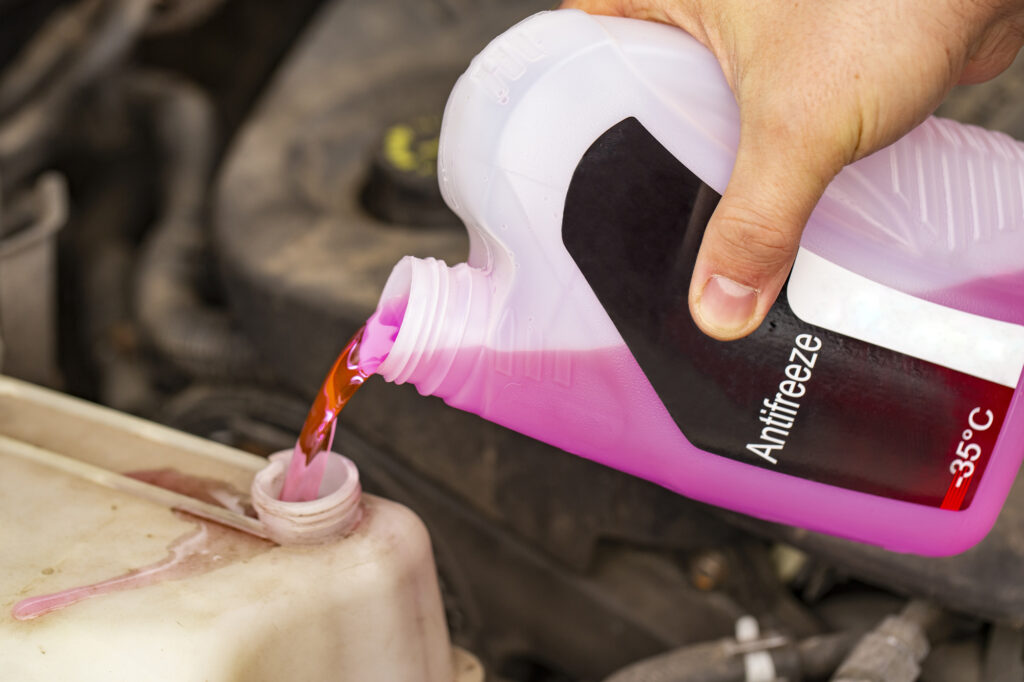
What Other Problems Can Low Coolant Cause?
Now you know the answer to “Can low coolant cause rough idle?” is yes. But there are many other problems associated with low coolant.
Blown Head Gasket
You don’t want to hear these three words from your mechanic. The head gasket is a critical component of combustion engines. When it fails, the repair can be costly. An indication of a blown head gasket is white smoke in the exhaust.
Rough Vibrations
If your coolant level is low, the coolant may be getting into parts of the engine that it shouldn’t be. Sometimes this can result in excess vibrations, at idle or while driving.
Leaking Fluid
Coolant is a harmful substance and needs careful treatment. If your vehicle has low coolant, it might be a leaking hose or another failed part. Correct this as soon as possible. Coolant is harmful, and many animals are attracted to its sweet smell.
Engine Failure
The worst possible scenario from low coolant is catastrophic engine failure. If the cooling system doesn’t have enough fluid or is damaged in a way that prevents it from doing its job, the engine temperature can rise rapidly.
When an engine overheats, parts can quickly fail. This problem can lead to complete engine failure, requiring replacement or rebuilding.
How Do I Know if My Car Needs Coolant?
Since the cooling system is a closed loop, normally you should not have to add coolant. But if you want to check if your coolant is low, you can check the coolant level under the hood.
Other signs of low coolant are regular overheating, a sweet smell, pools of coolant forming under the car, rough idle, and a malfunctioning cabin heater.
How To Check Coolant Level
Checking your coolant level is simple on most cars. For some, you can open the hood and inspect the coolant reservoir or overflow tank. These can be translucent and marked with lines showing the appropriate level.
For other cars, you’ll need to remove the cap on the reservoir or radiator to check the coolant level . Don’t open this while the vehicle is warm because the cooling system is under pressure and can spray hot coolant all over.
Wait at least 15 minutes before taking off the cap, then check your coolant level. Your owner’s manual can help identify the best location to check the coolant and if you should check it when the car is warm or cold.
How To Fix Low Coolant Problem
Fixing a low coolant problem begins with identifying the cause. Sometimes it is easy to spot the problem, as coolant might be leaking from a specific hose, connector, or another area.
Other times, fixing low coolant can be more challenging. If the coolant is burned inside the engine, that is a sign of more serious engine damage, which could be a blown head gasket.
Another potential cause for low coolant is a failed water pump, water pump gasket, or radiator. If these parts fail, you might notice your engine overheating. Or fluid might leak out.
Since the cooling system is a critical aspect of any vehicle, it is vital to find the reason for low coolant and correct it. Failing to take action can cause more problems to occur. Sometimes there are affordable, quick fixes that can solve low coolant. But it also might be a grave issue.

